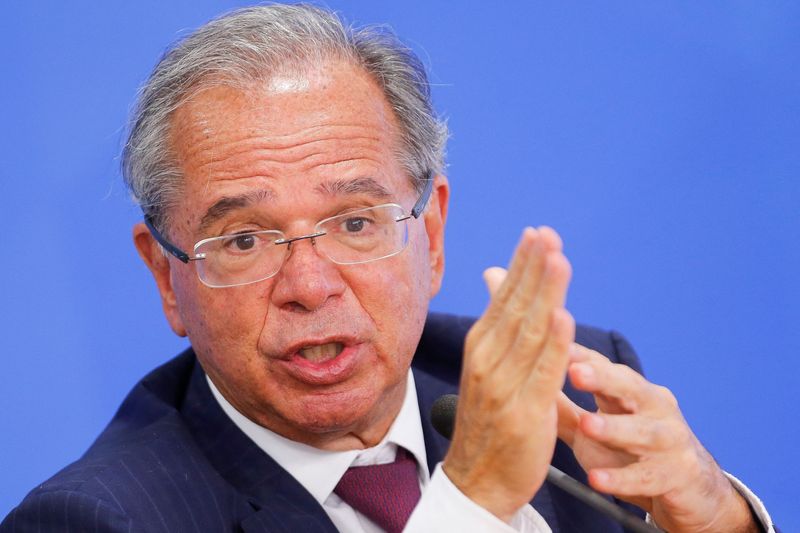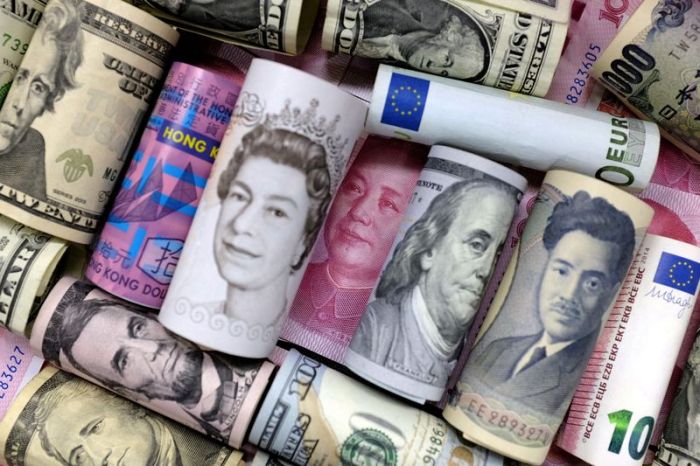By Marcela Ayres
(Reuters) -Brazil’s government cut an industrial tax (IPI) by 25% to fight inflation and help industry recover from a pandemic downturn, the country’s official gazette showed on Friday.
The tax cut, with immediate effect, “is a milestone of the beginning of Brazilian reindustrialization after four decades of de-industrialization,” said the Economy Minister Paulo Guedes.
It will affect all industrialized products, with the exception of tobacco items.
Guedes acknowledged the measure has a short-term impact on inflation, but highlighted it was designed as a policy to increase industrial productivity.
Reuters had previously reported that the tax cut was coming.
The minister said it will represent a loss of around 20 billion reais ($3.9 billion) in tax revenue, with the federal government giving up 10 billion reais and the rest coming from state and municipal revenue.
According to the minister, a 50% reduction in the tax was considered, but was not adopted “out of respect for the industry established in the Amazon.”
Companies operating in the Manaus Free Trade Zone are exempt from paying IPI, but can generate credits equivalent to the tax to deduct from the payment of other taxes. The lower the IPI rate, the fewer the credits.
A carbon market that is being designed by the government for the coming months is aimed at greatly benefiting the region, defended Guedes, adding that the goal is to promote a transition from IPI credits to carbon credits.
The IPI is a regulatory tax, so the rate was changed with only a presidential decree.
Earlier on Friday, President Jair Bolsonaro said he would have “good news” for Brazilian business in the afternoon regarding “the industrialization of the country,” without giving any further details.
The government has consulted the Superior Electoral Court about the feasibility of the measure, which implies a net loss of revenue in an election year, according to three sources heard by Reuters, who requested anonymity.
The court has not provided guidance yet, the sources said, with two of them noting the consultation was made out of caution, since the court’s prior endorsement is not mandatory.
Guedes has said that the government could give up the revenue from the tax cut, as a run of record tax revenue has boosted fiscal balance in Latin America’s largest economy.
Central bank data on Friday showed that public debt as a share of gross domestic product fell to 79.6% in January from 80.3% in December, as surging tax revenue led to the highest primary surplus for any month on record.
($1 = 5.1488 reais)
(Reporting by Marcela Ayres; Writing by Peter Frontini; Editing by Chris Reese and Alistair Bell)



















